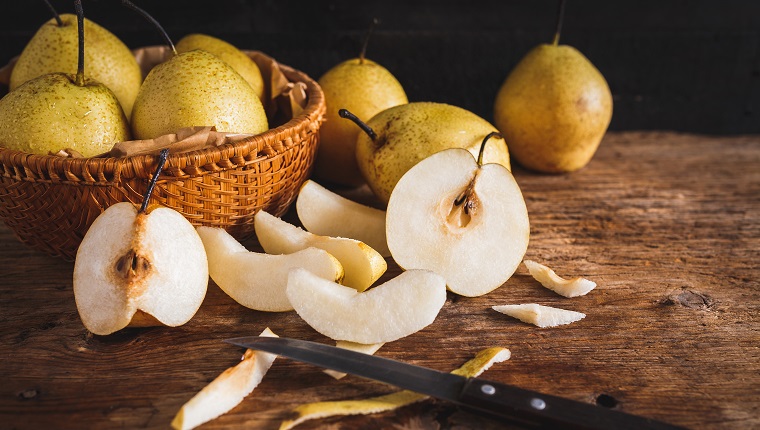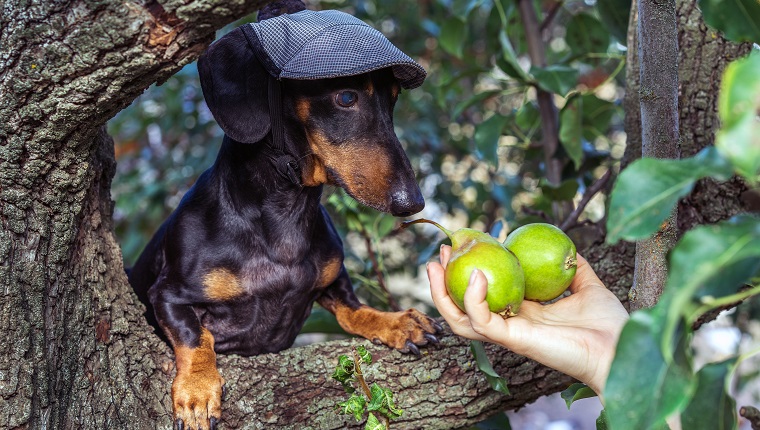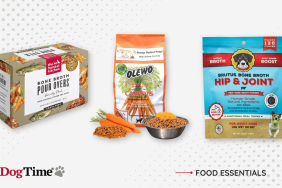Can dogs eat pears? We enjoy pears in all sorts of ways, so maybe you’re wondering if you can share a little pear morsel with your dog. But are they safe for dogs to eat?
The short answer is yes, pears are a healthy, low-sugar treat with proper preparation and moderation. For this one, you must pay attention to the amount you feed your dog, seed content, and the way pear can safely be served.
And as always, double-check all with your trusted veterinary professional before you add any new foods or ingredients to your dog’s diet. Here is what you should know about how pears can be a safe, occasional snack for your dog.
How Are Pears Good For Dogs?
In the world of fruits and dogs, pears are healthy, but not as nutrient-packed and beneficial as some other fruits, like papaya or dragon fruit. Still, pears do have substantial vitamin content. They’re loaded with vitamins C, K, and A, and jam-packed with dietary fiber.
According to the AKC, it’s also suggested that pears can reduce the risk of stroke by 50 percent.
Now, dogs produce vitamin C naturally, so that one isn’t as much of a benefit. But fruits with a high density of dietary fiber can be wonderful in moderation. Fiber provides tremendous digestive benefits to your dog, and gut health only becomes more important with age.
Aside from the nutritional benefits, dogs love the semi-sweet flavor of pears and their hearty crunch. If your dog enjoys apples, chances are they’ll enjoy pears just as much.
How Can I Safely Give Pears To My Dog?

Pear preparation for your dog is pretty straightforward. It’s really just the seeds that you need to worry about, as they contain trace amounts of cyanide.
One seed isn’t likely to have much harmful effect, but several can cause major issues. Cyanide poisoning is no joke and acts quickly. If your dog accidentally gets into several whole pears, seek veterinary assistance.
With that in mind, you obviously won’t want to toss your dog any leftover pear cores, apple cores, or any fruit core that contains seeds. But you can safely and simply prepare a pear for your dog.
Slice the pear free of the seeds and the core, much like you do for yourself. Then, cut the pear up into small chunks, so there’s no choking hazard. That’s it!
Even the skin is okay, usually. But it can cause stomach upset for some dogs, so you may wish to remove it.
When introducing pear to your dog, start slow — just a few chunks. And you may want to consider two tests: one with the skin on, and one without. Then, keep an eye on your pup for a few hours. See if any lethargy, diarrhea, hives, or other allergic reactions occur.
From there, it’s all about moderation. Pears being high in dietary fiber can cause stomach upset if served too much. A slice or two as an occasional treat is best.
Do you ever give your dog some pear as a treat? Does your dog have a preference for pears or apples? Let us know in the comments below.









